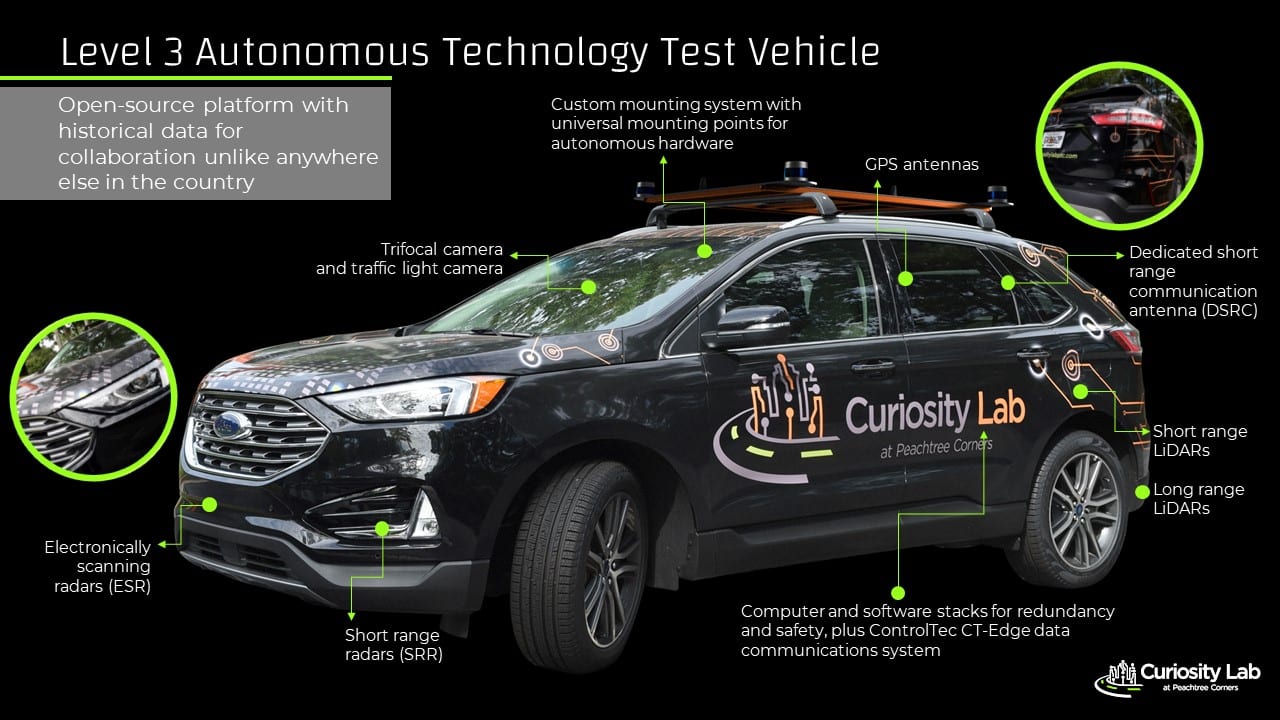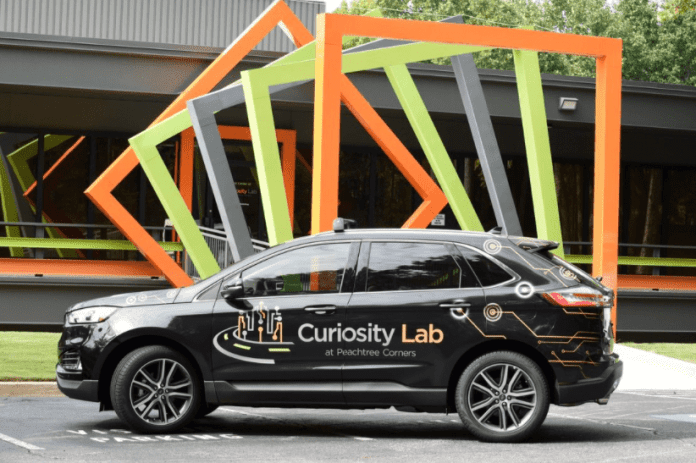The Atlanta suburb of Peachtree Corners, in Georgia in the US, has ‘filled the tank’ and pressed ‘go’ on a new Level 3 autonomous test vehicle, based on an open-source platform, from automaker Ford, for smart-city developers to try out new mobility technologies on public roads.
Peachtree Corners is home to the Curiosity Lab smart city project, funded by the city and federal grants, which includes a 1.5-mile test and demo track for autonomous vehicles and a glut of smart city pilots on a 500-acre technology park. The test track is also a public road, with a three-mile loop with ready V2X infrastructure.
US carrier Sprint, now part of T-Mobile, has deployed 5G for the Curiosity Lab setup. Cisco, Georgia Power, Delta Airlines, and Georgia Tech are also involved.
The new Level-3 test vehicle, based on the Ford Edge, is being on the track, which is insured for both driven and driverless vehicle activity, where it can “interact with local residents”. Level-3 autonomy means the vehicle has the potential to drive itself in certain circumstances, where it will assume control of all safety-critical functions.
Peachtree Corners said other test vehicles are either tested within closed courses or limited to a host company’s proprietary platform. The vehicle is being made available to companies working on full autonomous driving systems, mapping, light detection/ranging (LiDAR), cameras and computer vision, radar, and vehicle-to-everything (V2X) systems. It is equipped with a large rooftop rack, giving companies the ability to attach sensors for testing.
Test data from the sensors and devices on the test vehicle, as well as from city infrastructure, will be analyzed and made available to engineers through the city’s central control room, giving developers “a unique advantage” as they seek to develop new propositions.

Brandon Branham, chief technology officer and assistant city manager of Peachtree Corners, said: “There have been many mobility test vehicles introduced these past several years, but… companies have the opportunity [here] to develop new technologies on an open source mobility platform alongside other emerging solutions, while also leveraging actual smart infrastructure wholly owned by the city – not proprietary, closed platforms in closed track environments.
“The Ford Edge based test platform here operates in a living lab environment alongside residents that are walking and driving on the same public street. And we’re the first city in the world to insure a public roadway for both driven and driverless vehicle activity – giving companies a true advantage as they look to learn and improve their technologies before they ‘graduate’ and scale.”
Brian Johnson, city manager of Peachtree Corners, commented: “The introduction of an open-source platform for mobility research and testing is yet another milestone – giving companies the ability to develop new technologies in an actual city, complete with obstacles and everyday challenges that autonomous machines need to learn how to face.”

